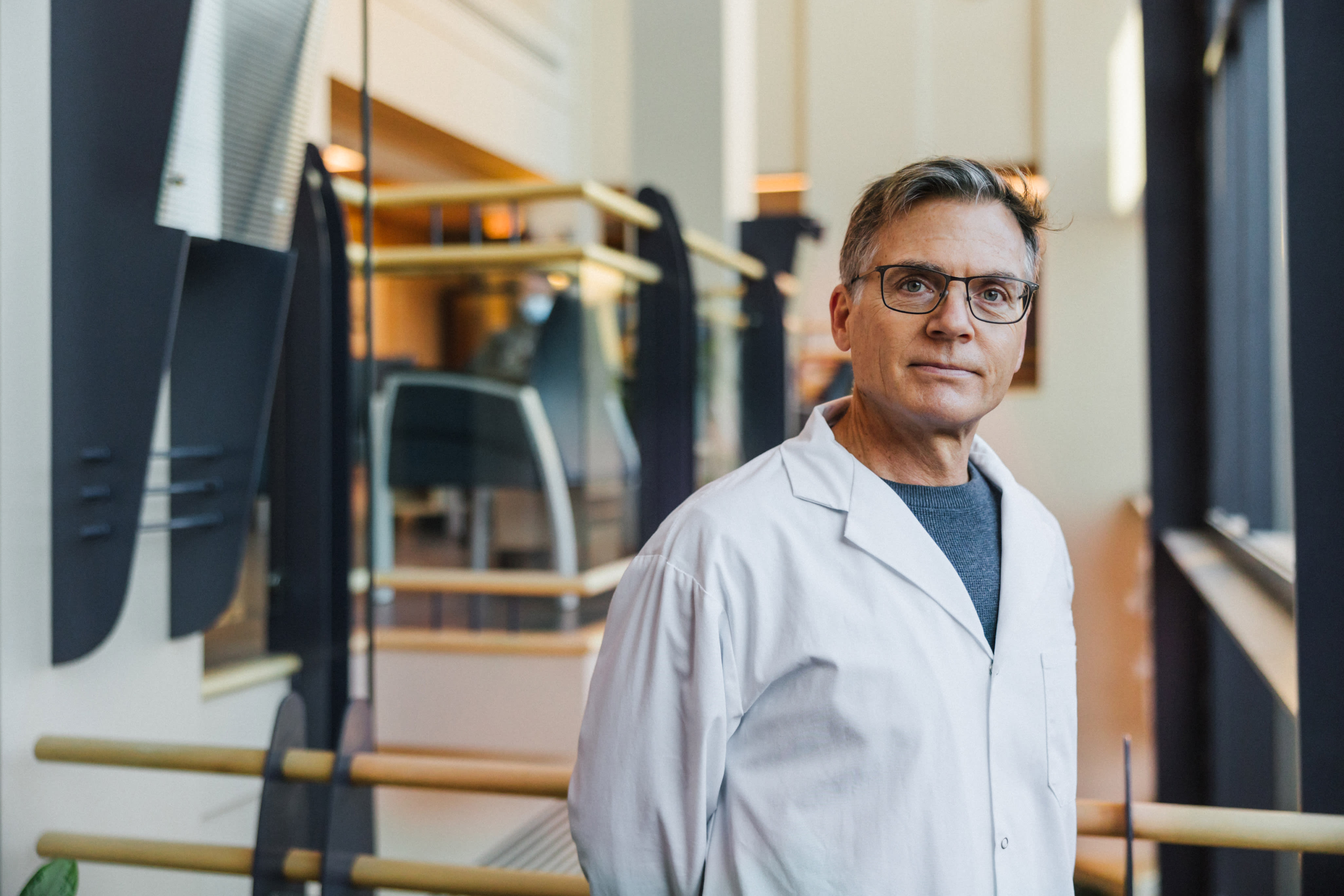Ending Generations of Women Lost
February 29, 2024
Found in Access, BC Cancer - Victoria, Hereditary Cancer
After losing her sister, mother and grandmother to cancer, Natasha Benn made an extraordinary decision to save her own life — and put her family at the forefront of a groundbreaking discovery in inherited cancer.

If Natasha’s story sounds like it’s straight out of a Grey’s Anatomy episode, it’s because the show may have been inspired by her family’s pivotal role in helping BC Cancer researchers discover a rare hereditary stomach cancer, as reported in the New England Journal of Medicine.
In 2009, the popular doctor drama followed fictional triplets who tested positive for the CDH1 gene mutation and were having their stomachs removed to avoid the disease which had taken their mother.
In reality, it was Natasha’s 24-year-old twin sister, Nicola, who passed away in 1993, two months after being diagnosed with stomach cancer. Natasha’s mother had died of the disease at 28, leaving behind four girls under age six. Her grandmother and great aunt similarly passed away under 40.
“My dad always suspected it was hereditary cancer,” says Natasha, “but there was no evidence.” Genetic counsellors at BC Cancer, however, did confirm that because Natasha and Nicola were identical twins there was a 99.9% likelihood that Natasha would also develop the disease. And so, still grieving the loss of her sister, she underwent a total gastrectomy (removal of the entire stomach).
“I didn’t have a choice. It’s something I had to do because I couldn’t imagine my family, especially my dad, losing anyone else.”
After the surgery, pathology found the beginning of cancer in Natasha’s stomach lining. “Had I not had my stomach removed, any amount of testing would not have found it until it was too late.”
With the proof that it was hereditary cancer, an international team led by BC Cancer’s Dr. David Huntsman, were able to conduct new research comparing the DNA of Nicola and myself, says Natasha. “Six years later, the team of geneticists isolated the gene that caused hereditary diffuse gastric cancer in our family.”

After losing Nicola, two other Benn sisters tested positive for the CDH1 gene mutation that causes hereditary diffuse gastric cancer. Natasha and Jennifer are both alive today thanks to life-saving surgery.
Natasha’s two older sisters were immediately tested for the CDH1 gene mutation. Tia, the one that closely resembled their mother, and therefore the one they worried about most, was negative. Jennifer, the eldest, was positive, and underwent a gastrectomy. “Her stomach was riddled with cancer,” says Natasha, “but thankfully, because of that surgery, she’s still alive today.”
While its possible to live well without a stomach, patients lose a lot of weight and need to eat less but more often. “I felt really full, really quickly,” says Natasha. “Eating half a banana would feel like I ate two turkey dinners. I went down to 92 pounds.”
It took Natasha two years to feel normal again, she says, but the scars inflicted by inherited cancer aren’t just physical. “I always wanted to be a mom. I didn’t have a partner when I was ready to have children and make that decision, but it would have definitely been something I had to think hard about.”
Natasha’s courage in undergoing major, life-altering surgery, and the breakthrough in science it provided, saved her and her sister Jennifer’s lives and countless other families. “When I last talked to Dr. Huntsman, he informed me that he personally knew of about 100 people who had a gastrectomy because they carried the gene. But there’s likely a lot more.”
The CDH1 gene mutation also puts women at an increased risk (40-60%) of developing lobular breast cancer. Not willing to take that chance, eight years ago Natasha had a double mastectomy.
“I don’t call myself a cancer survivor,” she says. “I call myself a cancer avoider.”
Natasha wants to pass this same opportunity — the life-saving knowledge and ability to be proactive and take preventative measures — to other women at high risk of inherited cancer by increasing access to supportive cancer care services which includes psychiatry, patient and family counselling, and hereditary cancer care and counselling. With an almost two-decade career in philanthropy, she knows the best way to champion care close to home is through community support.
Help expand supportive care services at BC Cancer – Victoria, by donating to the BC Cancer – Victoria Ernie & Yvonne Yakimovich Integrated Care and Research Pavilion.
The Pavilion will provide a dedicated space for BC Cancer’s essential Supportive Care programs, including Patient & Family Counselling, Hereditary Counselling and Medical Genetics.


